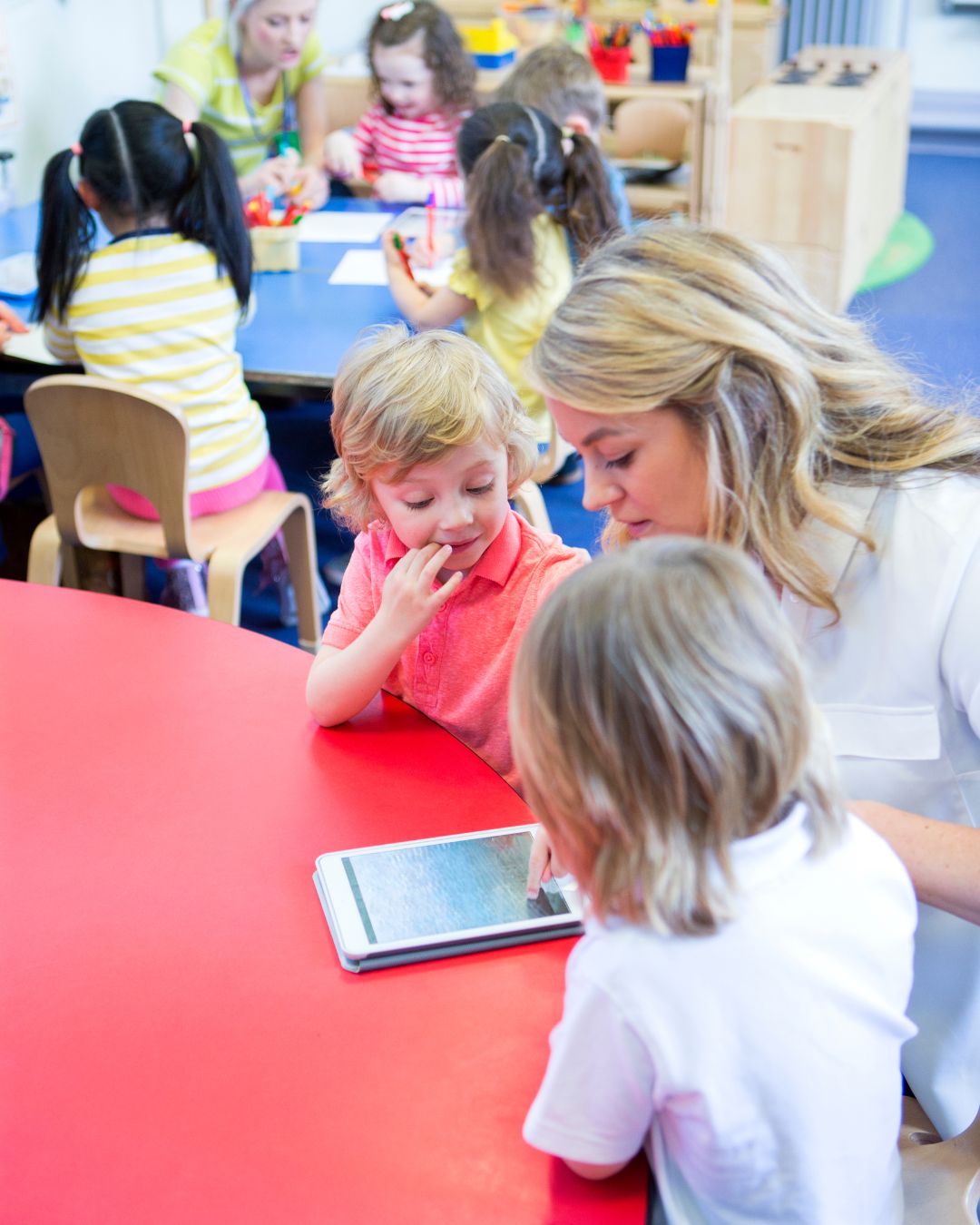

Standardized testing, ain't it just the worst? I mean, who even thought of this idea in the first place? Like, why do we gotta sit there for hours taking these stupid tests that don't even prove nothin'? To learn more click on this. It's like they're tryin' to make us all feel dumb or somethin'. But I guess there must be some kinda reason behind it all, right?
Well, supposedly the purpose of standardized testing in education is to measure how well students are learnin' and if they're meetin' certain academic standards. The idea is that by takin' these tests, teachers and schools can see where students need help and if they're makin' progress. So I guess it's supposed to help improve education or whatever.
But let's be real here - do these tests really show how smart someone is? Obtain the inside story check that. I mean, just 'cause you can bubble in a bunch of answers on a piece of paper doesn't mean you're actually learnin' anythin'. And what about all the stress and anxiety these tests cause? Ain't nobody learnin' when they're freakin' out about passin' some test.
So yeah, standardized testin' may have its so-called purpose in education, but at what cost? Maybe it's time we start lookin' at other ways to measure student success that actually make sense. Just my two cents on the matter.
Standardized tests, they're like, soooo annoying, right? additional details available view right now. Like, why do we even have to take them? There's, like, no point. But anyways, there are a bunch of different types of standardized tests that schools use to like, measure how smart we are or whatever.
One type is the multiple-choice test which is super boring because you have to pick from a bunch of options and hope you get it right. Another type is the essay test where you have to write a long paragraph about some topic that you probably don't care about. And then there's the performance test where you have to actually do something like solve a math problem or conduct a science experiment.
But like, no matter what type of test it is, they all suck and nobody likes taking them. It's just one of those things we have to deal with in school. So next time you have to take a standardized test, just remember that everyone else is feeling the same way and try not to stress too much about it. Just do your best and hopefully you'll survive until the next one comes along.
In the USA, public institution instructors spend an average of $479 expense annually on class materials, highlighting funding spaces.
Proficiency prices among adults worldwide have actually enhanced from 76% in 1970 to over 86% today, showing considerable progression in educational outreach.
The globe's earliest continually operating university, the University of Al-Qarawiyyin in Morocco, was founded in 859 AD by a woman, Fatima al-Fihri.
Educational modern technology investments got to over $18.66 billion in 2019, showing the expanding focus on digital discovering devices.
Technology plays a crucial role in modern education, there's no doubt about it.. It has revolutionized the way we learn and teach, making the process more interactive and engaging.

Posted by on 2024-05-02
Standardized testing, like, plays a big role in holding schools and educators accountable, you know?. It helps to measure students' knowledge and skills in a consistent way across different schools and districts.

Posted by on 2024-05-02
Parental involvement in schools and at home, it can have a big impact on student success in education.. When parents are involved with their child's schooling, they can help to motivate them and support them in their learning journey.

Posted by on 2024-05-02
So, let's talk about the importance of lifelong learning in staying relevant and adaptable.. Education is not just something you do when you're young and in school - it's a journey that lasts your whole life.

Posted by on 2024-05-02
In today's fast-paced world, it's important to keep up with the latest developments in your field.. By continuously updating your skills and knowledge through lifelong learning, you can ensure that you stay competitive in the job market.

Posted by on 2024-05-02
Standardized testing has its fair share of pros and cons, ya know? On one hand, it can help measure a student's academic performance in a consistent way across the board. This can be helpful for schools and teachers to identify areas where students may need extra support. However, on the other hand, standardized tests can put a lot of pressure on students and may not accurately reflect their true abilities. Plus, some folks argue that these tests don't take into account factors like different learning styles or personal circumstances that could affect a student's performance.
I mean, let's be real here - standardized testing ain't perfect. It can lead to teaching to the test rather than focusing on critical thinking skills and creativity. And let's not forget about the stress it can cause for both students and educators alike.
So yeah, while standardized testing does have its benefits in terms of providing data on student achievement, we gotta consider all sides of the issue before making any judgments. Like anything else in education, there are pros and cons to weigh out before jumping to any conclusions.


Standardized testing, man, it's like a big ol' cloud hanging over us students and teachers. Ain't nobody likes them tests, they just stress us out and make us feel all anxious. The impact of standardized testing on us is just so negative, you know?
For students, these tests can really mess with our heads. We gotta cram all this information into our brains just to regurgitate it on a piece of paper. And if we don't do well, it makes us feel dumb and inadequate. It ain't fair that our whole worth as students is based on how we perform on one test.
And let's not forget about the teachers, man. They gotta spend so much time teaching to the test instead of actually helping us learn and grow. It's like they're forced to follow this rigid curriculum that doesn't allow for creativity or real engagement with the material.
Overall, standardized testing just ain't good for nobody involved. It puts unnecessary pressure on students and takes away from the joy of learning for both students and teachers. We need to find a better way to assess our knowledge and skills without relying on these outdated tests. Let's keep fighting for change, man!
Standardized testing, like, totally has its fair share of controversies, ya know? Some peeps be sayin' that it ain't really accurate in measurin' a student's true abilities. Others be arguin' that it puts too much pressure on students and teachers alike. And let's not forget about how some folks believe it promotes inequality 'cause not everyone has access to the same resources to prepare for these tests.
But hey, there are also those who think standardized testing is important for holdin' schools accountable and comparin' student achievement across different districts. They be sayin' it helps identify areas where improvements can be made and ensures all students are learnin' at a certain level.
Personally, I gotta admit that I can see both sides of the argument. On one hand, standardized testing can provide valuable data for educators and policymakers to make informed decisions. But on the other hand, it ain't always a fair representation of what a student truly knows or can do.
At the end of the day, I reckon we gotta keep discussin' and evaluatin' how standardized testing fits into our education system. There ain't no easy answer or quick fix to this debate, but by listenin' to all perspectives and considerin' the impact on students, we might just find a way forward that works for everyone.


Preparing for standardized tests can be a daunting task, but there are some strategies that can help make the process easier. One thing to keep in mind is to not cram all your studying into one night before the test. It's better to spread out your studying over a few weeks so you can really digest the material. Another tip is to practice with sample questions and tests so you can get a feel for what to expect on the actual exam.
Don't forget to take care of yourself while preparing for standardized tests! Make sure to get enough sleep, eat well, and exercise regularly. These things may seem small, but they can have a big impact on your performance on test day.
And remember, it's okay to ask for help if you're feeling overwhelmed or stuck. Talk to your teachers, classmates, or even a tutor if you need extra support. Don't be afraid to reach out for assistance when you need it.
So don't stress too much about standardized tests - with some preparation and self-care, you'll be ready to tackle them head-on! Good luck!